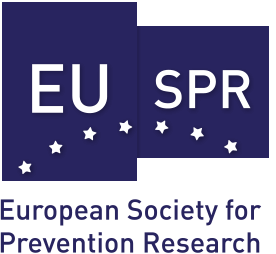|
Name |
Statement |
| Gregor Burkhart – EMCDDA, EU | |
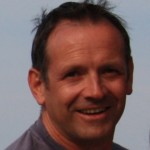 |
Dr. Burkhart has focused on inspiring and integrating the prevention research community in Europe. He was a founding member of EUSPR, and in addition to these efforts, in his role as Scientific Analyst for Prevention for the EMCDDA, Dr. Burkhart has documented prevention programming across Europe and has highlighted the outcomes of prevention research trials. He has been actively involved with the coordination of a large cross-national substance use prevention study, the EU-Drug Abuse Prevention trial (EU-Dap) that assessed the effectiveness of a school-based prevention curriculum, Unplugged, that was delivered in seven European countries. This programme is now being disseminated across Europe. |
| Rosaria Galanti – Karolinska Institutet, SW | |
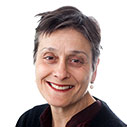 |
To be brief, I am professor of Public Health Epidemiology at the Karolinska Institutet in Sweden, also one of the founders and earliest supporters of the EUSPR, serving as first interim President until the Society became a legal entity, and as past honorary president thereafter. I am also a member of the Steering Board of the SPAN initiative (http://www.span-europe.eu/). My research covers a large spectrum of topics, from determinants of disease risk to evaluation of public health interventions, this latter having been preponderant in the latest years. It is with deep pleasure and a bit of pride that I consider the Society’s growth and reach during the latest three years, its scientific commitment becoming more and more recognized in the European research environment. Yet, we need to embrace old and new challenges. How to make the Society to grow numerically and attract new members, but also and perhaps more important how do we reach professionals and scientists in the variety of prevention and health promotion sectors that are already represented in Europe. My engagement in the SPAN project, especially in mapping prevention research entities and projects has taught me several lessons. First, we need a common understanding of what prevention research is and of its priorities. Next, we need to make its methodology stronger, and its results more visible. Above all, we need to inject human resources into this sector, trained and energetic young scientists who are also willing to cooperate to cover the whole spectrum of the Public Health continuum, from the etiology of health problems to development and evaluation of solutions, to implementation and advocacy. To these three endeavors I intend to devote my effort in the near future, beyond and above my potential role in the Board. |
| Fidelie Kalambayi – Romanian Angel Appeal Foundation, RO | |
 |
As a young researcher in the field of prevention science, I am most honoured to have been nominated to become a member of EUSPR Supervisory Board. I am a doctor in Sociology since 2012 and my research interests focus on the health risk behaviours and the health-related social norms that govern the lives of adolescents, key populations (such as injecting drug users, men having sex with men, sex workers, prisoners) and people with chronic diseases. Over the last nine years, I have coordinated behavioural and serological surveys among key populations; I explored the psychosocial determinants of treatment non-adherence among people with chronic diseases and experimented with innovative research methodologies – such as “the patient journey”. I conducted research in Romania, as well as in Ukraine. I also enjoyed the experience of designing health promotion interventions targeting adolescents. One of my achievements in this area is the award-winning project, „5pm” (www.5pm.ro) – the first Romanian interactive online platform providing adolescents with information about the health risks related to unprotected sex, drugs, alcohol and cigarette abuse. Besides research and project implementation, I have had the chance to contribute to policy development, while being a member of national working groups elaborating or assessing policy in the areas of HIV/AIDS, drugs and people with disabilities. I have conducted most of my w I would be honoured to join the supervisory board of the EUSPR, not only to have the opportunity to connect to prevention researchers around Europe. I also believe that prevention science needs to be promoted more arduously among social scientists (especially sociologists and anthropologists), among young researchers and researchers from Eastern and Southern Europe. |
| Jeff Lee – Liverpool John Moores University, UK | |
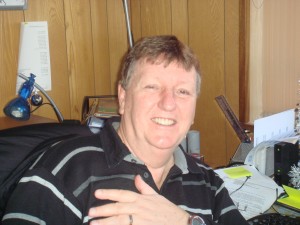 |
I have been active in the field of prevention and education for more than 30 years during which time I have worked nationally and in more than 70 countries internationally to promote the need for and value of prevention as the major focus for addressing substance misuse. I have always advocated for prevention to be provided within a context of promoting health and well-being and for it to address all aspects of personal and social development of individuals as well as addressing the social, economic and environmental factors that contribute towards negative health behaviour outcomes. In my work with governments, WHO, and UNODC I have been identified as a leading contributor to the development of “life skills” as an important component within the prevention and education provision as well as being known for my work in project development, management, training and resource development. My previous professional roles have been as Chief Executive of The Advisory Council for Alcohol and Drug Education in UK; Executive Director of Mentor International; and am currently working as Project Manager at Liverpool John Moores University on the European Drug Prevention Quality Standards Phase II project. Throughout my professional life I have been keen to provide the link between research and practice. I am convinced that Prevention Science is something that needs to identify what is best from the world of academia and research and to then communicate and support its transfer to the realm of the practitioner and policy maker internationally so as to inform their knowledge, skills and competencies to support and offer prevention based on evidence of what works and in line with known quality processes and principles. I believe this to be a fundamental challenge that EUSPR can effect and an area where I believe I can make a major contribution. This is essential if we are to have a real impact in achieving our prevention mission. On a practical note whilst I am now in my “senior years” I hope I have gathered substantial expertise and experience from my working life and which now affords me more time to support the mission and development of EUSPR. |
| Zili Sloboda – Applied Prevention Science, USA | |
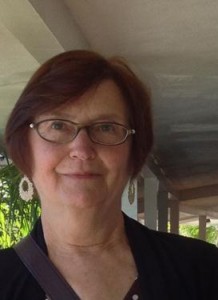 |
The advancement of prevention science has been a priority for me for over twenty-five years. The true highlights of my professional life have been:
Like any evolving science it will be necessary to have international recognition that there is a field of prevention science and of the importance of its application to enhance the health and safety of our children, parents, workers, and older adults. My vision is to work with EU-SPR in achieving this goal. This can be done not only through the continuing support of prevention science through EU-SPR’s conferences and particularly, its workshops. But there are other opportunities for the EU-SPR to extend prevention science internationally:
These collaborations will bring together prevention researchers and practitioners worldwide. Such collaborations will provide opportunities to learn together and to contribute to the establishment of the science of prevention. |
| Elisabete Santos – TAP Portugal Health Care Unit, PT | |
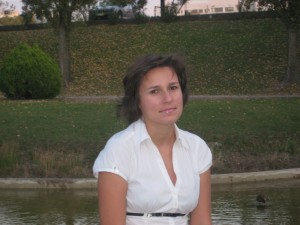 |
Elisabete Santos has a degree in Psychology by the University of Lisbon and has recently completed a joint PhD in Psychology and Public Health by the University of Lisbon and the Liverpool John Moores University. Her research interests lie in substance use, programme evaluation, and evidence-based prevention interventions. She is also undertaking post-graduate studies in Cognitive-Behavioural Psychotherapy. She has worked for 12 years at the Portuguese National Agency for Drugs and Drug Addiction in the field of Substance Use Prevention. Currently she works for the TAP Portugal (the main Portuguese airline) Health Care Unit (UCS) where she coordinates a Workplace Drug and Alcohol Prevention Programme. She is also working as a trainer at the Portuguese Association of Cognitive-Behavioural Therapies and has private practice in Clinical Psychology. |
